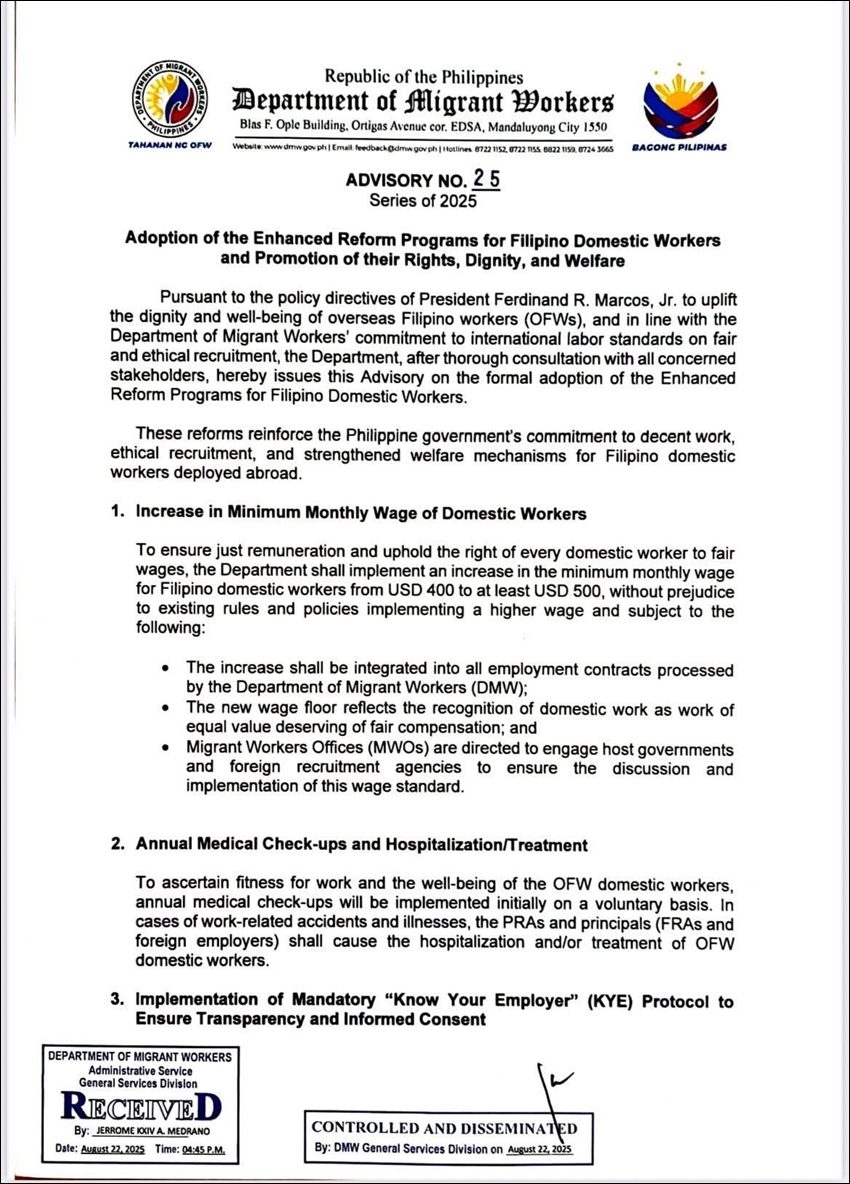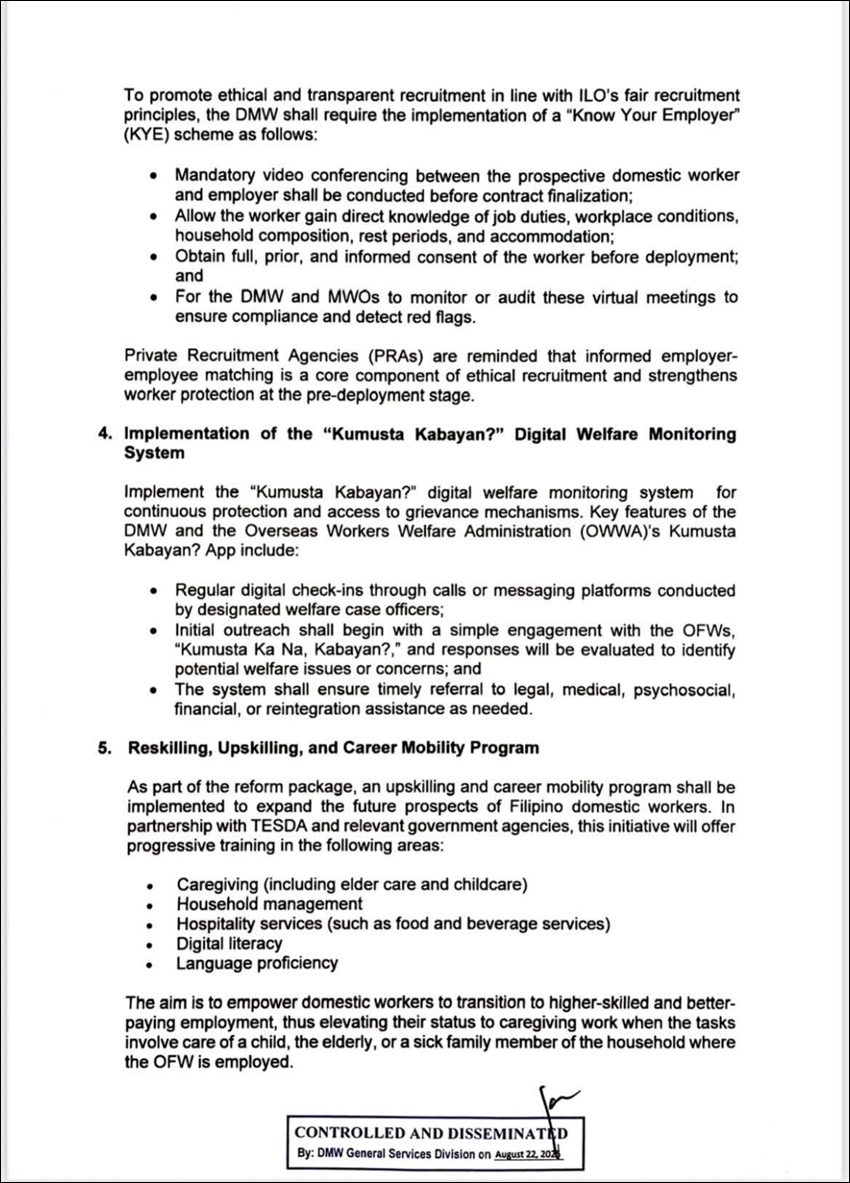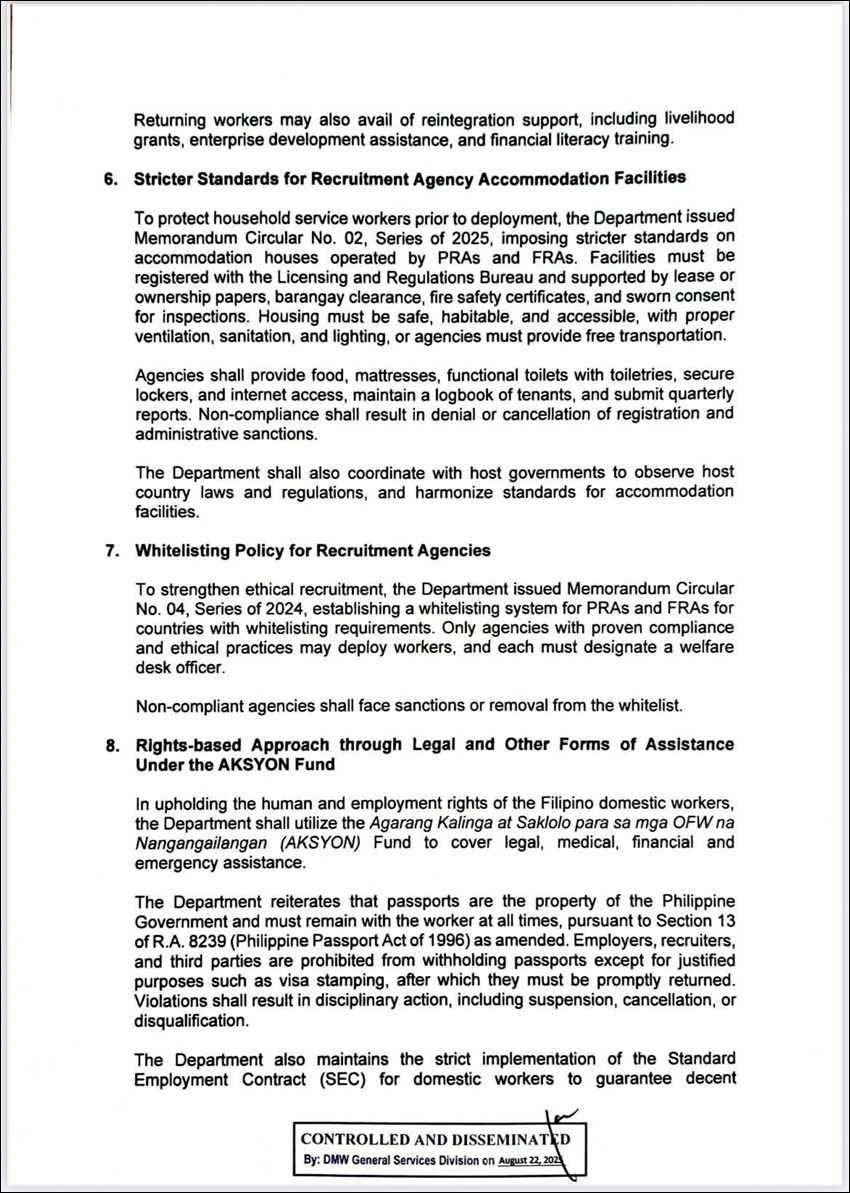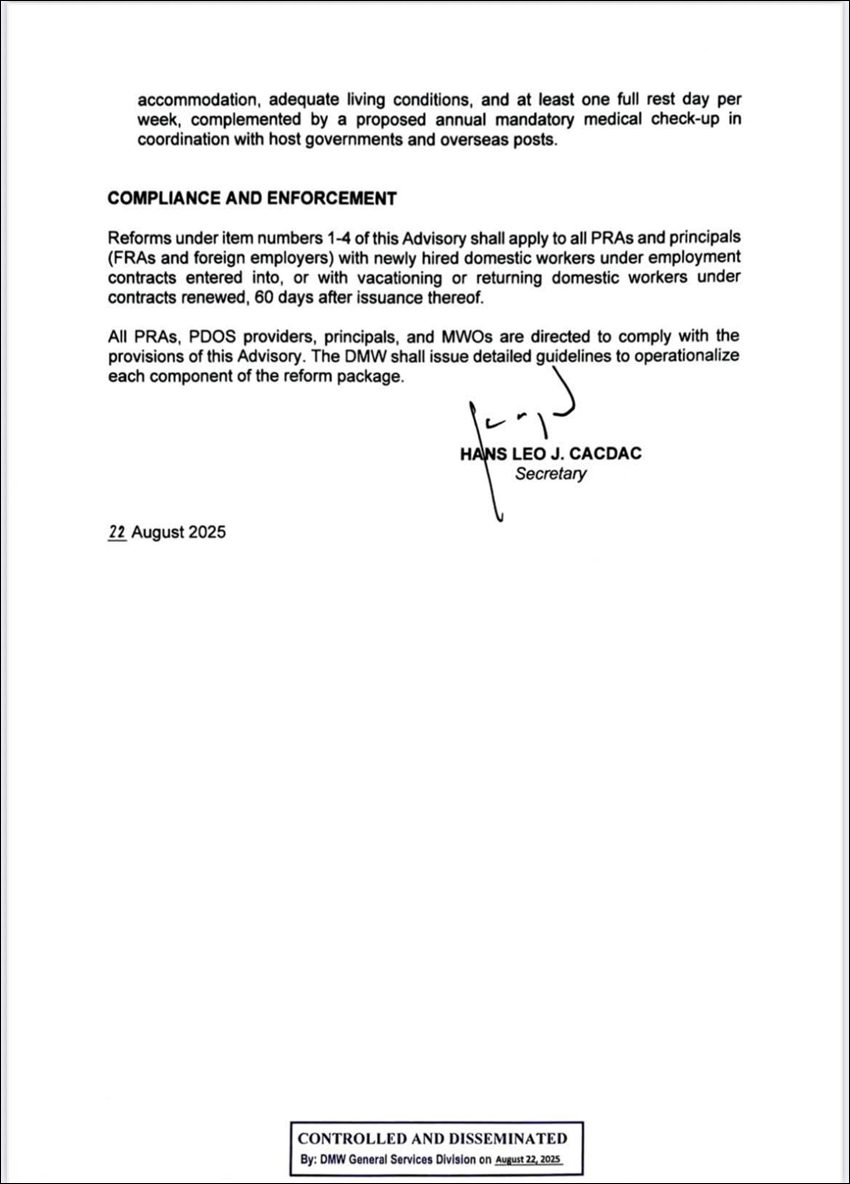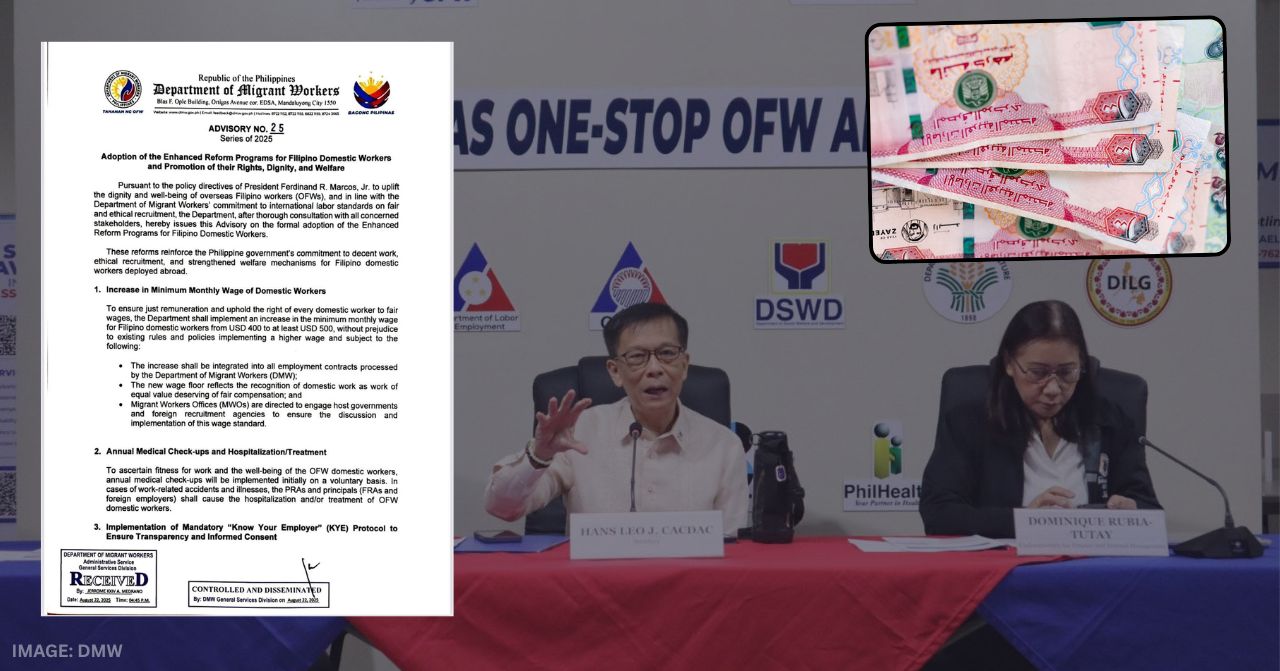PHILIPPINES (August 22, 2025) – The Department of Migrant Workers (DMW) has announced a significant wage increase for overseas Filipino domestic workers, raising the minimum monthly salary from USD 400 to USD 500 (from AED 1,465 to AED 1,836 approximately). This 25% increase represents one of the most substantial wage hikes for Filipino domestic workers in recent years.
This is good news for many domestic helpers as this sets an expectation for fairer compensation and improved working conditions. After all, many Filipinos have gone abroad in order to provide a better life for their families back home by sending their monthly salaries.
Also Read: UAE Law on Domestic Workers: 12-Hours Daily Rest, 30 Days Leave, Weekly Off
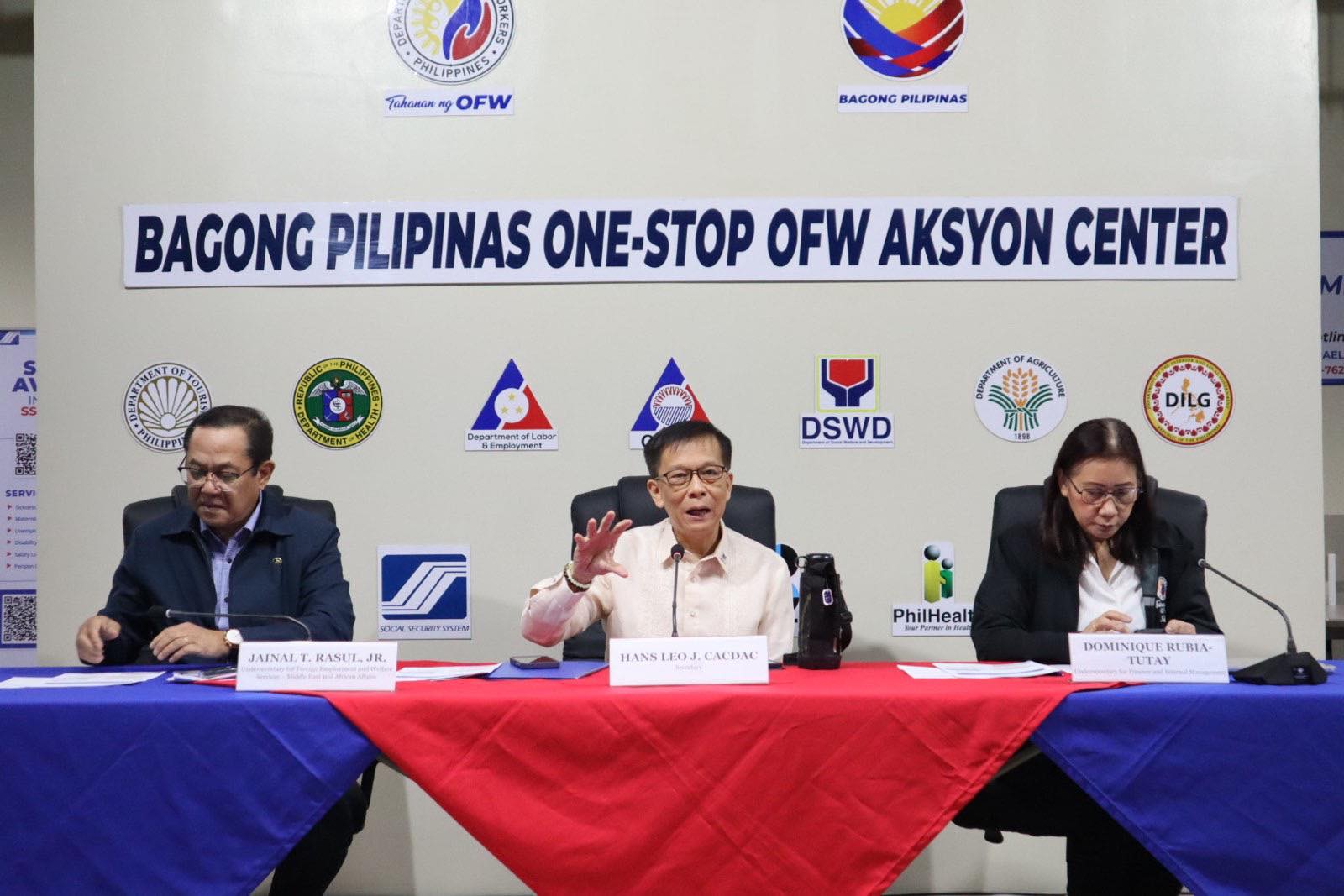
Contents
New Wage Floor Takes Effect in 60 Days
Speaking at a media briefing in Makati City on Friday, Migrant Workers Secretary Hans Leo Cacdac confirmed that the new minimum wage will take effect 60 days from issuance. The increase follows six months of consultations with various stakeholders and will be integrated into employment contracts processed by the DMW.
“To ensure just remuneration and uphold the right of every domestic worker to fair wages, the Department shall implement an increase in the minimum monthly wage for Filipino domestic workers from USD 400 to at least USD 500,” Secretary Cacdac stated.
Here are the other items included in the said reformed package for domestic workers
- Higher Minimum Wage: The minimum monthly salary will increase from USD 400 to at least USD 500, recognizing the value of domestic work.
- Free Medical Care: Domestic workers will have access to annual medical check-ups and hospital care, offered voluntarily at first and at no cost.
- “Know Your Employer” Calls: A mandatory video call with the employer is now required before signing a contract to ensure transparency and clear understanding.
- “Kumusta Kabayan?” Welfare Checks: The DMW will proactively check on the well-being of OFWs through a new digital monitoring system.
- Career Growth Programs: Opportunities for reskilling and upskilling will be available to help workers improve their job prospects and career options.
- Better Housing Standards: Recruitment agencies must provide higher quality and more decent living accommodations for workers waiting for deployment.
- Whitelisting of Agencies: Only recruitment agencies with a proven track record of ethical practices and compliance will be allowed to deploy workers.
- Legal and Financial Support: Continuous access to legal aid and other assistance will be provided through the DMW AKSYON Fund.
Beyond the Minimum: Room for Higher Wages
The DMW emphasized that the AED 1,836 monthly wage serves as a floor, not a ceiling. Cacdac noted that actual salaries could be higher depending on the host country and the worker’s specific skills and experience.
“The new wage floor reflects the recognition of domestic work as work of equal value deserving of fair compensation,” he explained. Migrant workers’ offices will engage host governments and private entities abroad to ensure discussion and implementation of this new wage standard.
Also Read: OFW Interview: Emie, Housemaid in Dubai with AED 3000 Salary, Works for Dream Employers
Focus on UAE and Regional Markets
The wage increase particularly benefits Filipino domestic workers in the “big four” markets, which include Saudi Arabia, the United Arab Emirates (UAE), Qatar, and Kuwait. These destinations host the largest deployments of Filipino domestic workers globally.
Secretary Cacdac highlighted that Filipino domestic workers belong to elementary occupations, forming the largest segment of OFWs. International classification entities consider them a vulnerable skill category requiring greater protection.
Comprehensive Reform Package
While the wage increase takes center stage, it’s part of a broader protection package that includes seven other reform components. These reforms aim to improve safety, welfare, and career development opportunities for household workers.
The DMW also plans to establish separate job classifications for domestic workers and caregivers, recognizing that many household workers perform caregiving duties without proper recognition or compensation.
“A caregiver requires a different skill set and heavier responsibility. Soon, we will establish a separate minimum wage for caregivers,” Cacdac announced.
Moving Forward
This wage increase represents a significant step toward ensuring Filipino domestic workers receive fair compensation for their valuable contributions. The AED 1,836 minimum wage acknowledges the essential nature of domestic work while providing a foundation for even better compensation based on individual circumstances and market conditions.
The reforms are designed to cover workers in all destinations, ensuring comprehensive protection for Filipino domestic workers worldwide.
Please see the full announcement advisory from DMW below:
